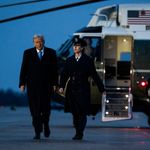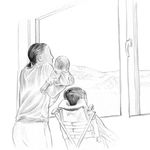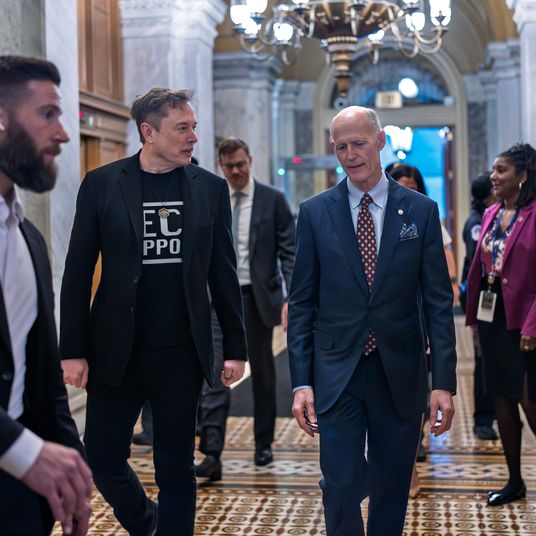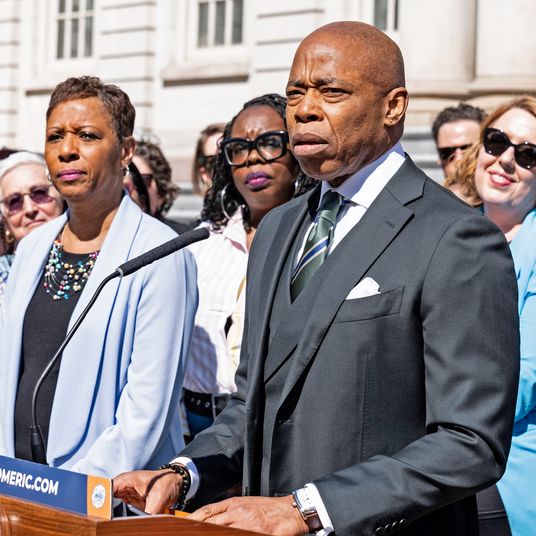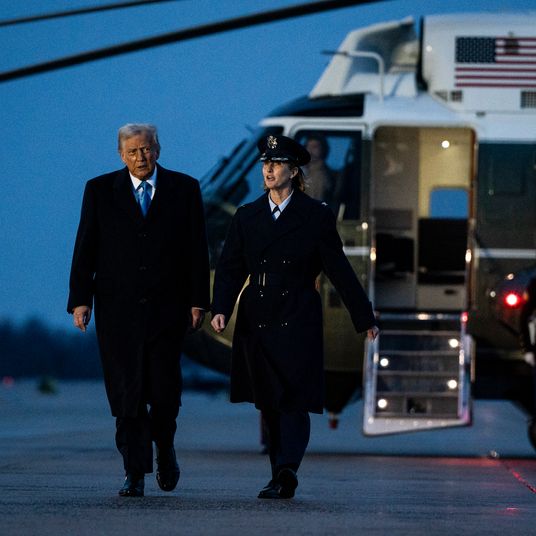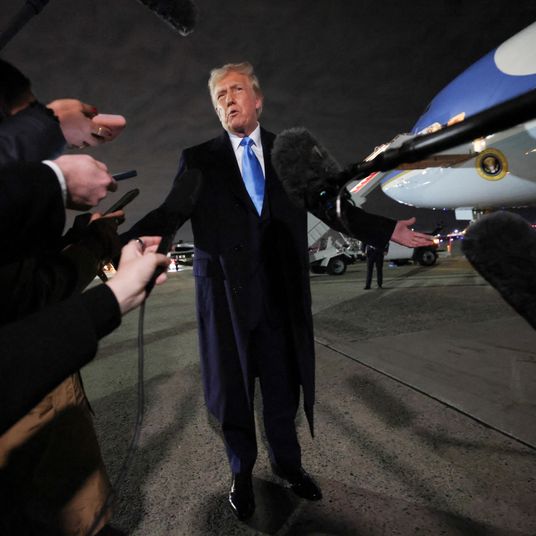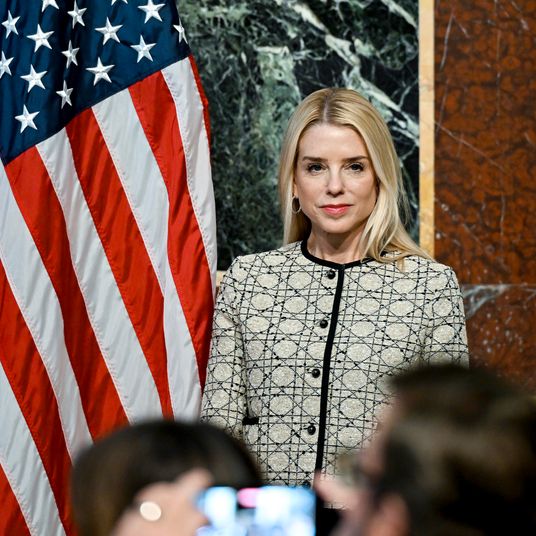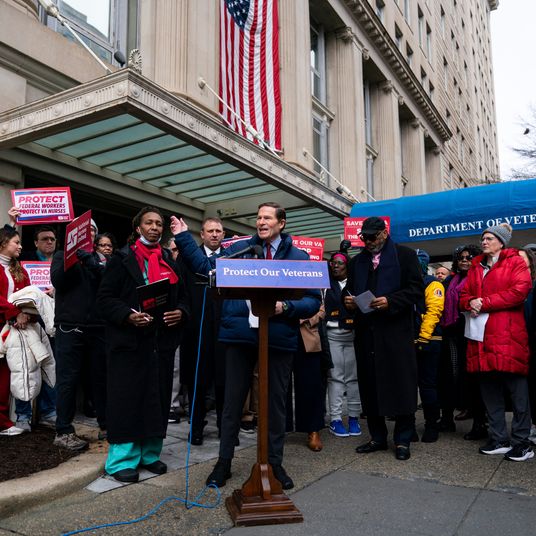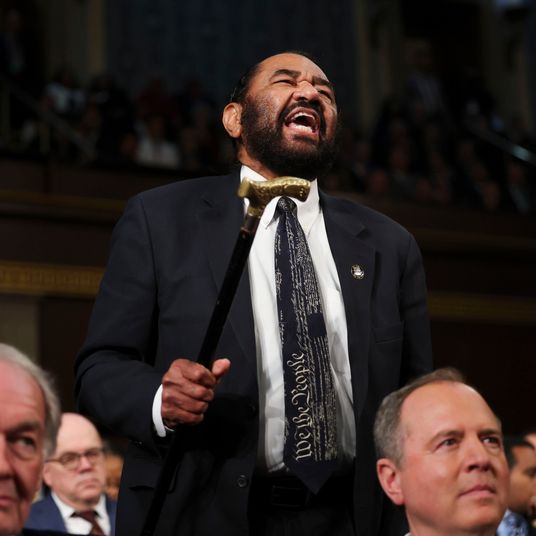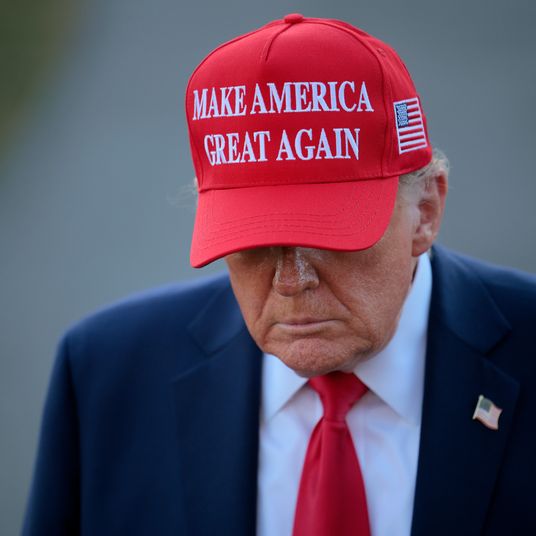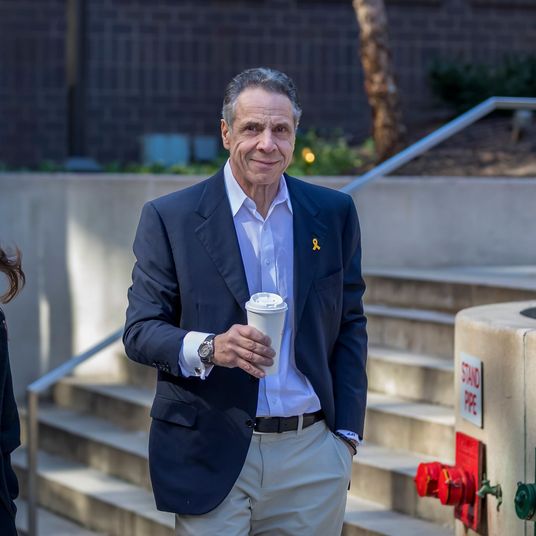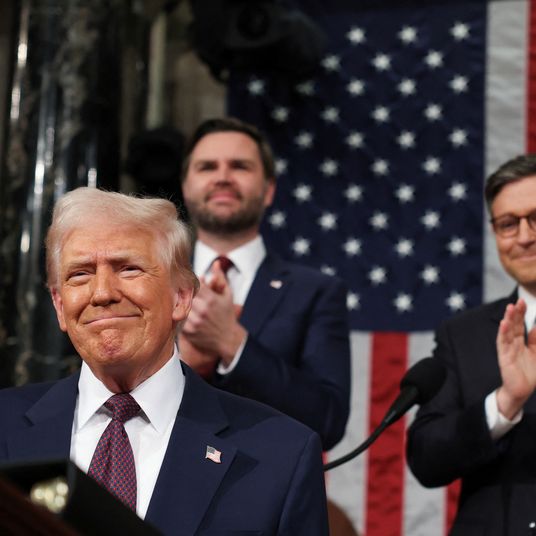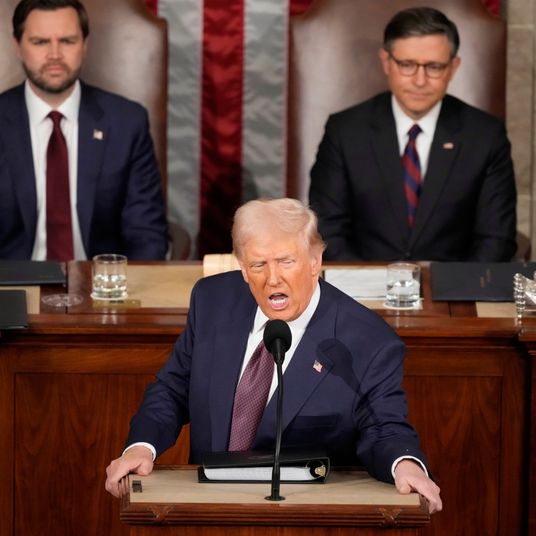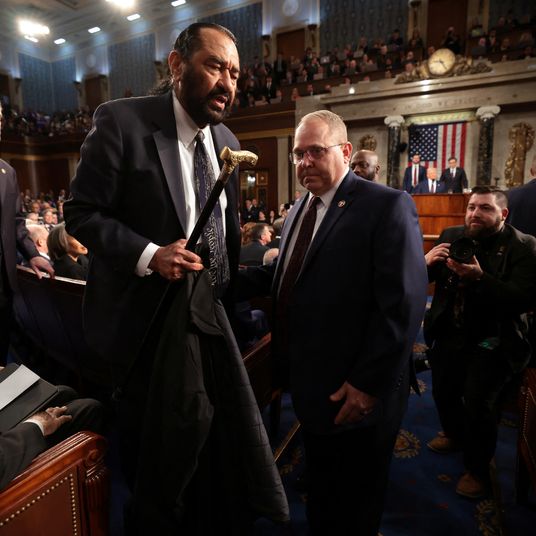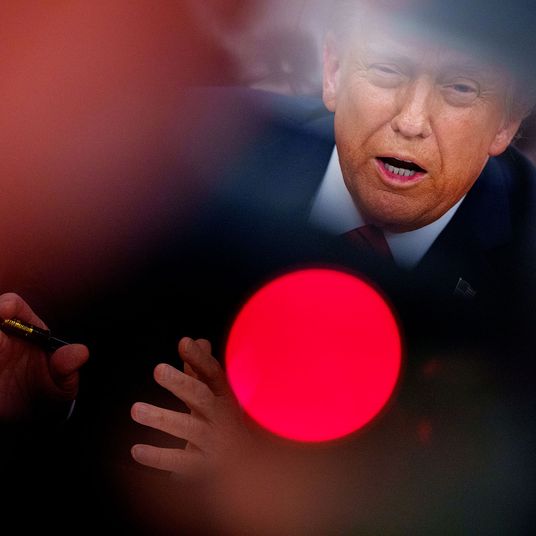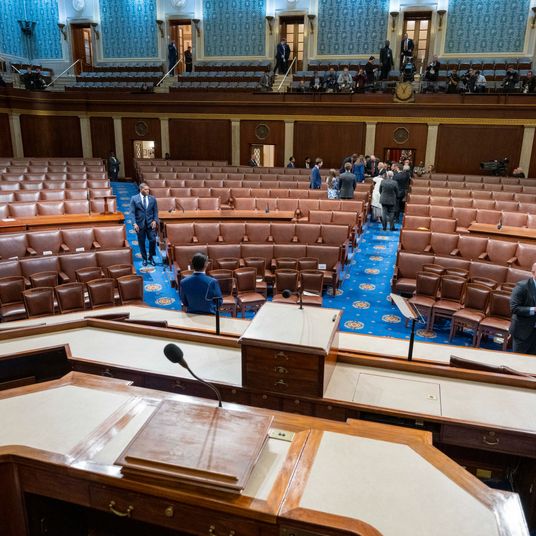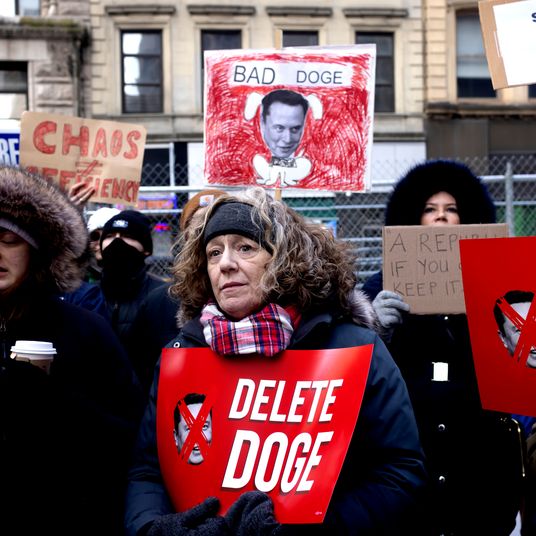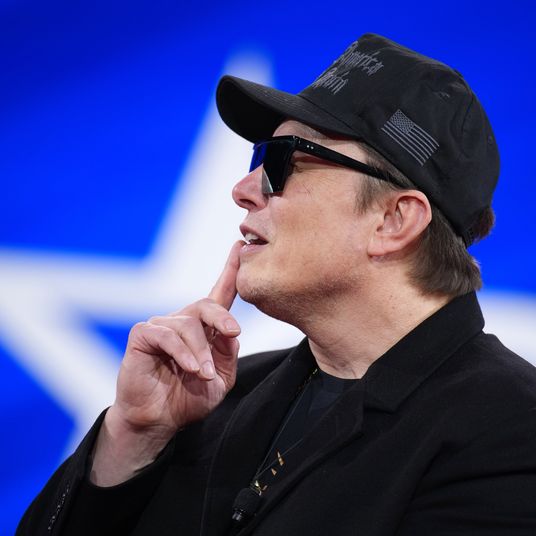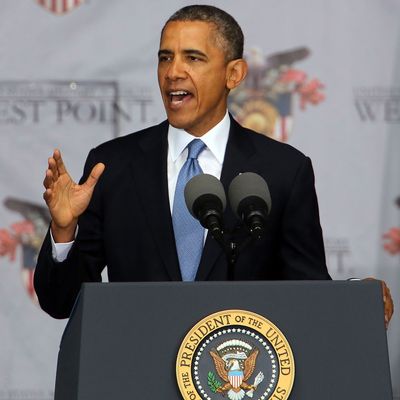
“Mushy,” “largely uninspiring,” “not exciting,” “weak,” “fell short of its target” — no, not the new Adam Sandler movie. Reviews of President Obama’s commencement speech at West Point yesterday, which he used as another opportunity to define his foreign-policy doctrine, have been mostly negative, and not just from the usual critics like John McCain and Lindsey Graham, the Statler and Waldorf of war hawks.
“American isolationism is not an option,” said Obama, calling the U.S.“the one indispensable nation.” However, he cautioned in a familiar tone, “U.S. military action cannot be the only — or even primary — component of our leadership in every instance. Just because we have the best hammer does not mean that every problem is a nail.”
If there were a Rotten Tomatoes for political speeches, Obama might top Blended’s 14 percent but not by much. Here’s what the experts are saying, from faint praise (a Peter Travers–style thumbs up) to the harshest, A. O. Scott–like pans.
At Slate, Fred Kaplan rejected the knee-jerk negativity: “The ensuing cable pundits’ complaints — that it was insufficiently ‘muscular’ or ‘robust’ — only proved how necessary this speech was,” he wrote, highlighting Obama’s uncommon common sense. But Kaplan acknowledged, as did many others, “Obama does have a tendency sometimes to demolish straw men, and he indulged it most blatantly on Wednesday morning when discussing Syria.”
In a fair, level analysis, Peter Baker of the New York Times called the speech “a sustained rebuttal” to doubters, but noted that the big ones came away cold:
He did not convince his critics. Peter D. Feaver, a former aide to President George W. Bush and a professor of political science at Duke University, said the speech seemed “highly partisan and defensive in tone.”
Richard N. Haass, who also worked in the Bush administration only to break with it over the Iraq war, said the speech tried to “split the difference” between those who think America is doing too much and those who think it is doing too little. “But it didn’t articulate a rationale for what we should be doing,” said Mr. Haass, now president of the Council on Foreign Relations.
The left-leaning Times editorial board was even less impressed and used the word “ludicrous” in reference to Obama’s call for transparency with drone strikes. More generally:
The address did not match the hype, was largely uninspiring, lacked strategic sweep and is unlikely to quiet his detractors, on the right or the left. […] he provided little new insight into how he plans to lead in the next two years, and many still doubt that he fully appreciates the leverage the United States has even in a changing world. Falling back on hackneyed phrases like America is the “indispensable nation” told us little.
Usually safe and cautious in the center, Bloomberg View also said meh, because it knew that’s what everyone else would think:
In laying out his vision for the U.S. role in the world, the president aimed for the well-trod high ground between isolationists and interventionists. His last effort to get there, a peevish exposition at a news conference in the Philippines, wasn’t very convincing. His presentation was more polished today, but it’s unlikely to tamp down criticism of his conduct of foreign policy as weak, indecisive and unconvincing.
CNN White House correspondent Michelle Kosinski was bored:
This was a sweeping speech that kind of covered everything and was a chance for the President to list what seemed like every accomplishment of his administration. But it came across at times as a defensive, lawyerly answer to critics.
And the network’s chief national security correspondent Jim Sciutto concurred:
… the speech fell short of its target. The President instead delivered a familiar defense of current strategy with virtually no new policy announcements.
More predictably, The Wall Street Journal editorial got snarky:
We know that no foreign policy speech can cover the entire world. But listening to Mr. Obama trying to assemble a coherent foreign policy agenda from the record of the past five years was like watching Tom Hanks trying to survive in “Cast Away”: Whatever’s left from the wreckage will have to do.
And the only thing more unsurprising than the Journal making a 14-year-old pop-culture reference was the reaction of Dick Cheney, who left his cryogenic chamber to give his emphatic thumbs-down on Hannity.
“We’ve got a problem with weakness, and it’s centered right in the White House,” said the former vice president. “It’s as though he wasn’t even around when 9/11 happened.”


